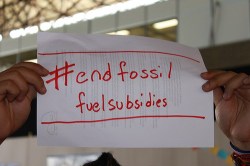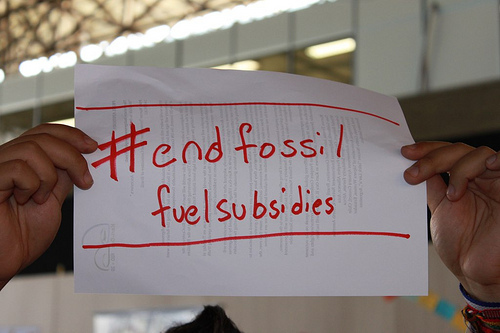
Photo by changeandswitch.
Chesapeake Energy Corp., the second-largest natural-gas producer in the U.S., has paid just 1 percent in income taxes over its 23-year history, Bloomberg reports. In theory, the U.S. corporate income tax rate is 35 percent.
The company and other U.S. oil and gas producers can thank a century-old rule that allows them to postpone income taxes in recognition of the inherent risk of drilling wells that may turn out to be dry. The break may be outdated for companies such as Chesapeake, which, thanks to advances in technology, struck oil or gas in 99.6 percent of its wells last year. … When the tax policy first came into use, an average of 80 percent of all the wells drilled were dry holes, according to a 2008 Congressional Research Service report [PDF] on the history of energy tax policy.
President Barack Obama has tried over and over again to get rid of this tax loophole. “In its most recent plan, the White House estimated this year that the change would add $3.5 billion to federal coffers in 2013 and $13.9 billion over 10 years,” reports Bloomberg.
But Republican “deficit hawks,” so eager to cut food stamps and heating assistance for the poor, have, oddly, not risen to his aid.



